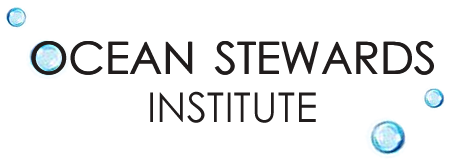Stop offshoring offshore aquaculture
Article first published October 2017 in Global Aquaculture Advocate.
Kampachi Farms’ Velella Beta-test with only 2,000 kampachi. It took NOAA around two years to provide the permits for each iteration of this small-scale research project culturing a native fish that is already farmed commercially in these waters around Kona, Hawaii.
The Ocean Stewards Institute has always seen itself as an agent of change. We have long seen the need for expanding seafood production globally, and we don’t believe that we should be limited by the literal or figurative blue horizon. We want to go beyond, in every sense of the word. We believe that offshore aquaculture is the most scalable, environmentally responsible means available for growing great fish.
So why aren’t we there yet? And if we’re not there, then why aren’t we trying harder? What’s wrong with us?
But maybe the problem isn’t us. Maybe the government is the problem! (There’s a great tradition in America of blaming the government for all that ails.) Governments – like any systems – are never perfect, and they can always benefit from a little tinkering, or in some cases, wholesale change.
The challenge is how do we know when we need to change, and then how do we make that happen. And what does this all imply about the prospects of growing fish at sea?
Even small-scale research projects – such as Kampachi Farms Velella Beta-test – have difficulty obtaining permits. Funding was provided for this project from National Science Foundation, Illinois Soybean Board, and International Copper Association.
Without comment on any of the other various policies of the federal administration, it is refreshing to see our government welcoming comments from any and all on how they might better serve us, the people. The government is itself asking if government is the problem, and if so, what might they change?
Clearly, change is needed. The current national seafood trade deficit is running over $14 billion annually. More than 90 percent of the seafood that we eat is flown or shipped in from other countries. That galls an administration that trumpets American productivity, and which is striving to create more American jobs. The United States lays claim to the most expansive Exclusive Economic Zone (EEZ) on the planet. How curious, then, that not a single fish has yet been commercially grown in U.S. federal waters. That really does need to change! Read the full article at the Global Aquaculture Advocate.
Learn about the Ocean Stewards' steps to improving aquaculture regulation in the US.


